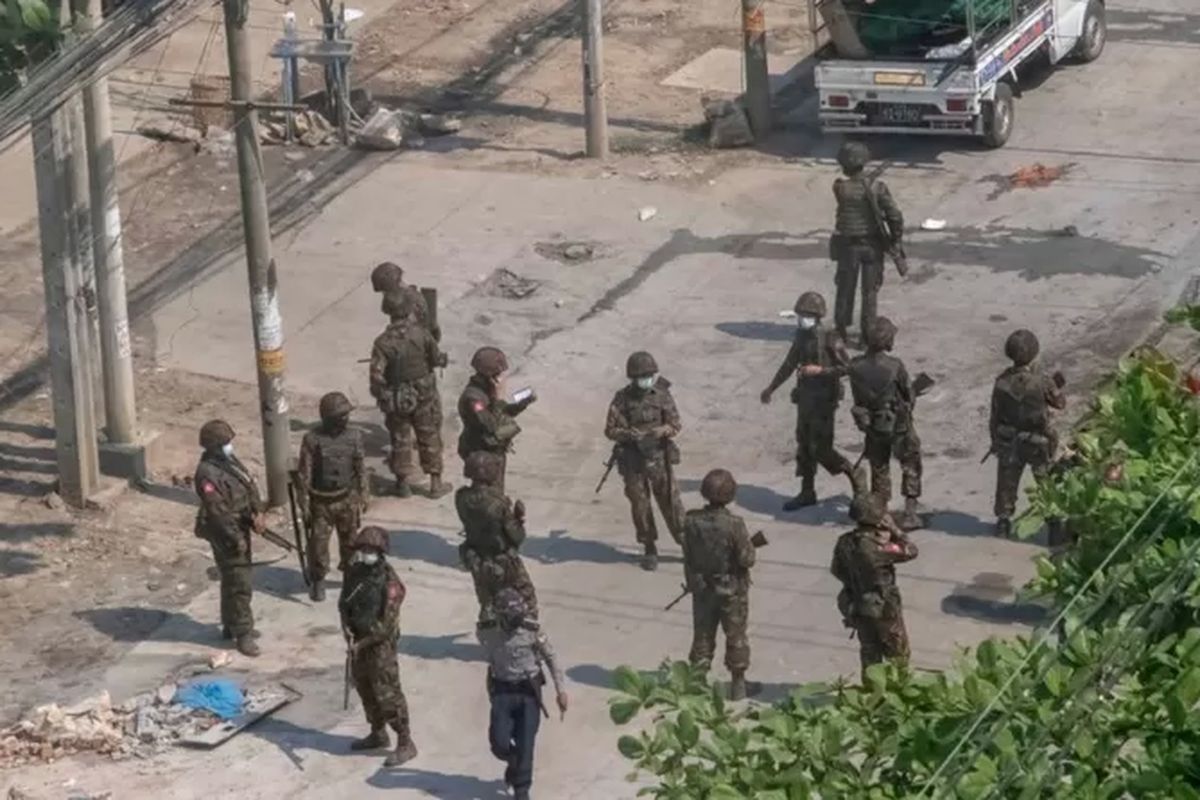
BANGKOK, KOMPAS.com — Indonesia is under increasing pressure to use its new one-year role as chair of the Association of Southeast Asian Nations (ASEAN) to isolate Myanmar’s junta in a bid to end its bloody crackdown on pro-democracy opponents, analysts say.
But experts say reaching a consensus among the regional bloc remains a challenge in an area where Myanmar’s military still draws diplomatic cover from neighboring nations, as violence shows no signs of abating nearly two years after the February 2021 coup.
In its annual World Report released Thursday, Jan.12, Human Rights Watch flagged human rights abuses in Myanmar, also known as Burma, as one of Asia’s worst flashpoints.
Report authors say 16,000 people have been arbitrarily jailed for demonstrating in favor of a return to democracy, which ended when the military junta toppled the elected government of Aung San Suu Kyi.
An estimated 2,300 civilians have been killed in clashes with the military or airstrikes as the junta seeks to squash a sprawling rebellion, while the junta has also returned to the use of the death penalty after three decades.
Also read: Cambodia Says ASEAN Envoy to Attend Informal Myanmar Meeting
“We urge Indonesia to use its ASEAN chairmanship effectively to resolve the crisis in Myanmar,” Elaine Pearson, director of Human Rights Watch’s Asia Division, told reporters in Jakarta Thursday.
“The world’s response to Russia’s invasion of Ukraine shows what is possible when the world acts in unison.”
In 2021, Myanmar, an ASEAN member since 1997, agreed to a five-point plan to end the crisis, including ending the violence “immediately,” establishing a peaceful dialogue with opponents and allowing the ASEAN chair to appoint a special envoy.
But Myanmar’s junta, whose representatives have been barred from the bloc’s high-level meetings since the coup, has failed to abide by the agreement made with its regional counterparts.
Analysts say that has left a conundrum for the new ASEAN chair, Indonesia: Continue to let Myanmar dictate its terms of engagement with the region or pressure the junta into ending its campaign of violence.
Also read: ASEAN Foreign Ministers Hold Emergency Talks on Myanmar
“We’re looking to Indonesia to rise to that challenge … will it be easy? Of course not, knowing principles of non-interference,” Pearson said.
ASEAN operates on a principle of cross-border non-interference—a value reflecting a politically complex region that spans communist dictatorships (Laos, Vietnam), military-steered quasi-democracies (Thailand, Cambodia) and Muslim-majority democracies (Malaysia, Indonesia).
“So, to do this will require a lot of attention from [Indonesian Foreign Minister] Retno Marsudi and I really hope for the sake of the people of Myanmar that Indonesia does rise to that challenge.”
































